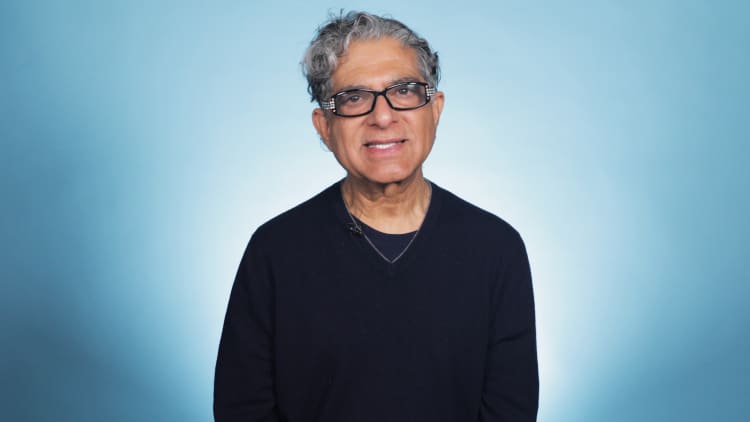"Describe a time when you failed," is a common and tricky prompt that often comes up in job interviews — and for good reason.
According to a new study out of Northwestern University's Kellogg School of Management, your past experiences with failure could predict your career success in the long run.
Researchers analyzed data from scientists who had applied for grants from the National Institutes of Health early in their careers (between 1999 and 2005). They took note of the ones who received funding for research, and the ones whose projects didn't make the cut.
Then, they tracked how many papers those scientists went on to publish over the next decade, and counted how many times those studies were cited in other papers to gauge how successful their research was.
Those in the failure group were 6.1% more likely to publish a "hit" paper than the successful ones. Those who had missed out but stuck it out performed better than those who had instant success, Dashun Wang, study author and associate professor at the Kellogg School of Management tells CNBC Make It.

Though the researchers weren't able to use their data to explain the magnitude of the performance difference, they tested 10 hypotheses.
Wang said two of the theories tested were the strongest. First, Wang suspects that who fail may have more grit or put in more effort than people who catapult to the top.
The other most plausible hypothesis was that the scientists who received their initial grants had to follow through with their research, which may have stunted their career growth, Wang says. "Whereas those in the 'near miss' category could think more bravely, and that compelled them to pursue more novel research."
While these findings might seem specific to those working in academia, Wang says the takeaways can be applied to any career setback. "I've been using them in my daily practice since I discovered this," he adds.
"No one is immune to failure; things don't always work out the way you like," he says. If you can persevere in the face of failure, there's concrete evidence that it will pay off, he says.
For those who have had success at the start of their careers, Wang says this should be a wake-up call. "If you become complacent, sooner or later you may end up being worse than those who didn't make it the first time," he says.
Broadly speaking, these findings could help people who are hiring and looking at resumes or LinkedIn profiles, Dr. Wang adds. "Those things are exclusively composed of successful stories, [and] there have been discussions that maybe we should have some failure experience," he says. "This finding gets us to be more serious about how best to illustrate failure within the typical successful experience."
Don't miss:
- This is the best way to combat impostor syndrome, says science
- How to stay committed to your goals: Tell someone more successful than you, says new study
- There's a major mistake most aspiring entrepreneurs make, start-up investor warns
Like this story? Subscribe to CNBC Make It on YouTube!



